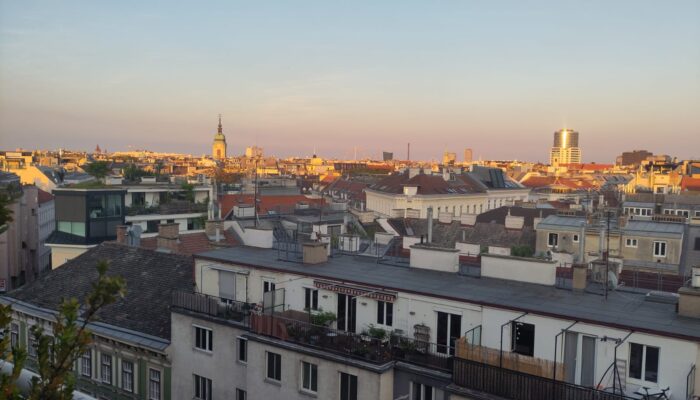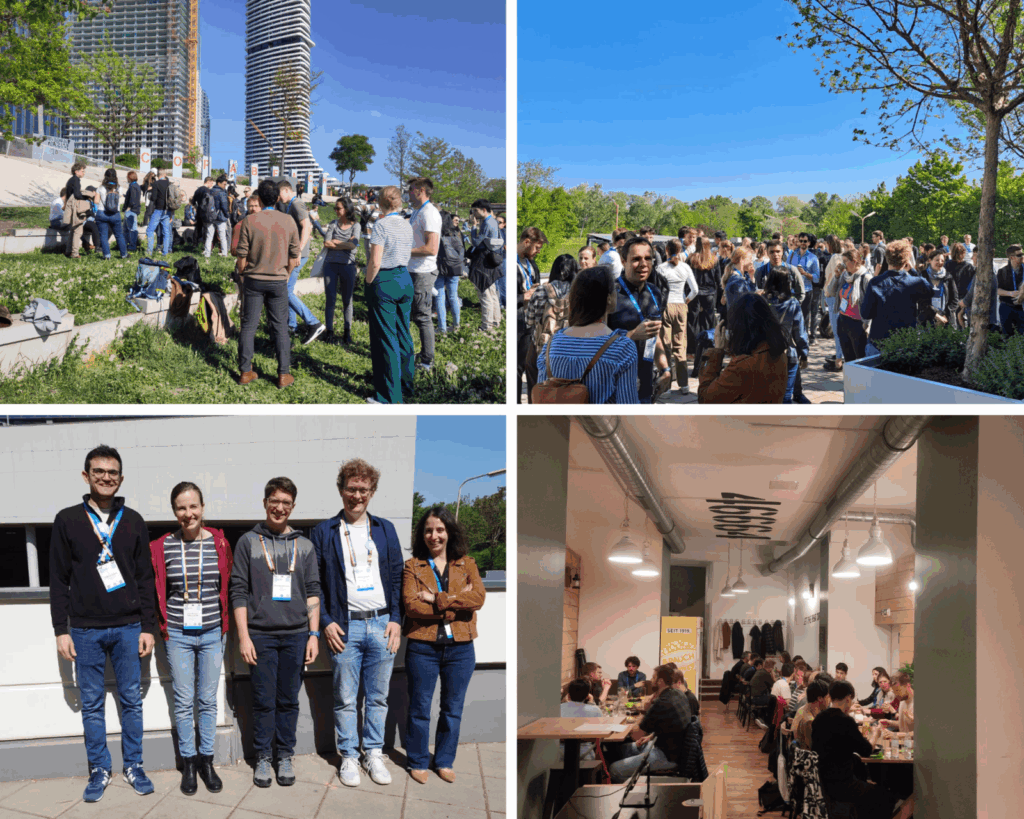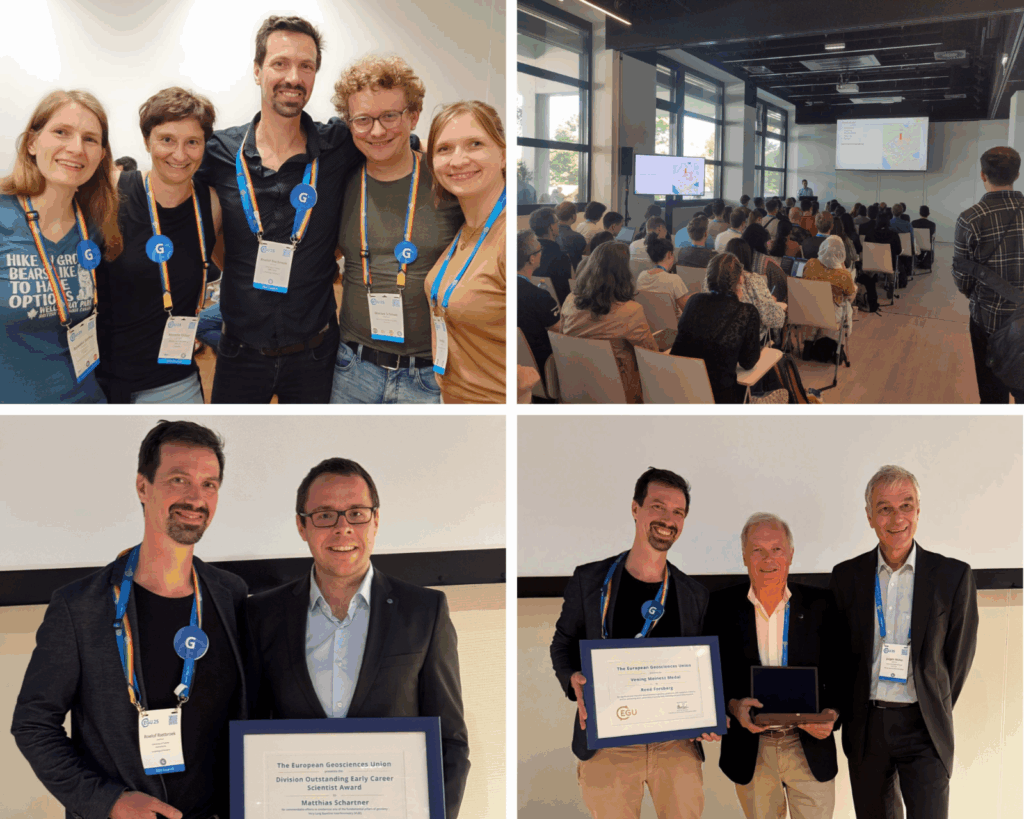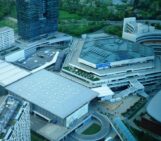
Thank you all for an amazing EGU General Assembly (GA) this year! If you missed EGU25 or some of the events we organised, here’s a recap so you can stop wondering how it went and get an idea of what to expect next year.
We started our week with the online division meeting on Wednesday before the general assembly, as is our tradition. We have made some significant changes within the division team as we have reached the end of the defined term for division presidency. We want to express our gratitude to Annette for everything she has done for the division, early career scientists (ECS), and the broader community! Annette has passed the chair to Roelof Rietbroek. Some of you may know Roelof if you have been following EGU for a while; he served as the union-level ECS representative during 2017-2018 and was the ECS representative for the Geodesy Division before that. We are excited to have Roelof as our new division president!
Additionally, there has been a change in the ECS representative role. Marius has taken over as the main ECS representative from Öykü and will hold that position for the next two years. However, Öykü is not stepping back just yet; they will serve as co-representative this year and will remain active as the blog editor and author. We also took some time to introduce the new members of the ECS team. With that, EGU25 officially kicked off.

A snapshot of our memorable moments: Top left shows the Pre-GA icebreaker, top right captures the Geodesy fika on terrace G, bottom left features members of the geodesy ECS team (from left to right: Çağatay, Leire, Bene, Marius, Michela), and bottom right highlights our Geodesy ECS dinner. Photo credits: Bene, Çağatay, and Marius.
In Vienna, we started the EGU25 week with the pre-icebreaker as usual, but this year we decided to expand the number of divisions involved a little bit more, partly we also wanted to engage with other fields and explore the interdisciplinarity of our division. It took place on Sunday, where early career scientists from the Geodesy (G), Geodynamics (GD), Planetary Sciences (PS), and Solar-Terrestrial Sciences (ST) divisions gathered at CopaBeach. Yes, this spot became a kind of permanent location for our pre-GA meet-up. We plan to continue this event every year, so we would love to see you there next year. Let your colleagues know, especially those new to EGU, as it builds a great foundation for a successful and fun week. Following the icebreaker, many attendees made their way to the EGU Opening Reception at the conference venue, marking the official start of the EGU25. The momentum continued on Monday morning with the Geodesy Fika, a social gathering held in the EGU networking zone. Geodesy Early Career Scientists convened at the terrace G (our usual spot 🙂) to enjoy a coffee break and connect with each other. It was a vibrant atmosphere, with discussions ranging from research interests to expectations for the General Assembly. We carried this to the ECS dinner on Monday. Fortunately, we were able to extend the number of spots available compared to last year, allowing us to fill an entire floor! Isn’t it fantastic to have so many ECSs together? If you attended, we would love to hear about your experience so we can work on improvements for next time. The first couple of days at the GA were packed with social events, from union-wide ECS networking events to division-specific ones.
This year, we hosted a coffee catch-up called “Geodesy for Everyone – An Open Discussion on Advancing EDI” on Tuesday afternoon, where we discussed equity, diversity, and inclusion in geodesy. We ended the day with the IAG reception, which has been a wonderful addition to the GA’s geodesy program for many years. The short course Geodesy 101, convened by Rebekka, took place this year on Wednesday lunchtime and was a great success, attracting many researchers from all divisions who sought to gain an overview of geodetic concepts, ranging from GNSS and coordinate transformations to the analysis of gravity data. Have you considered expanding your horizons across disciplines? The 101 short courses are offered by various divisions and can offer you easily understandable insights into many disciplines. If you are interested, we recommend you take the time to check them out at next year’s GA (EGU26).

Top left: Geodesy division team (left to right: Rebekka, Annette, Roelof, Marius, Anna). Top right: Geodesy 101 for non-geodesists. Bottom left: Roelof with ECS award winner Matthias Schartner. Bottom right: Roelof with 2025 Vening Meinesz medalist René Forsberg and 2023 medalist Jürgen Müller.
We had a new addition to the programme this year: a special session G0.1 in a panel discussion format on “Geodesy – From Invisible to Essential” to raise awareness about the importance of geodetic products for socio-economic development and the need to strengthen the global geodesy supply chain. This was kind of a division policy session. How can we involve geodesy in the policy scene? Within the division, we have been discussing this as well, and with other divisions, we have some things discussed, so keep your eyes open for future science policy engagement! A highlight of the week was, of course, medal lectures; the Vening Meinesz Medal Lecture by René Forsberg and the G Division Outstanding ECS Award Lecture by Matthias Schartner. If you missed it or want to enjoy it again, you can watch the recording! It is available over the EGU25 MAL programme.
These events, including this blog, are community efforts. Thank you very much to all of you who participated in these events, making the EGU25 a special experience for all of us. We want to continuously improve these events for the community, and it is important for us to give you an opportunity to participate actively and to receive feedback from you, the community. So please let us know if you have feedback on past events or suggestions for future events. Did you like having a recap of what happened at the GA? Should we do this regularly every year? Let us know!
-Edited by Michela, Leire and Bramha

